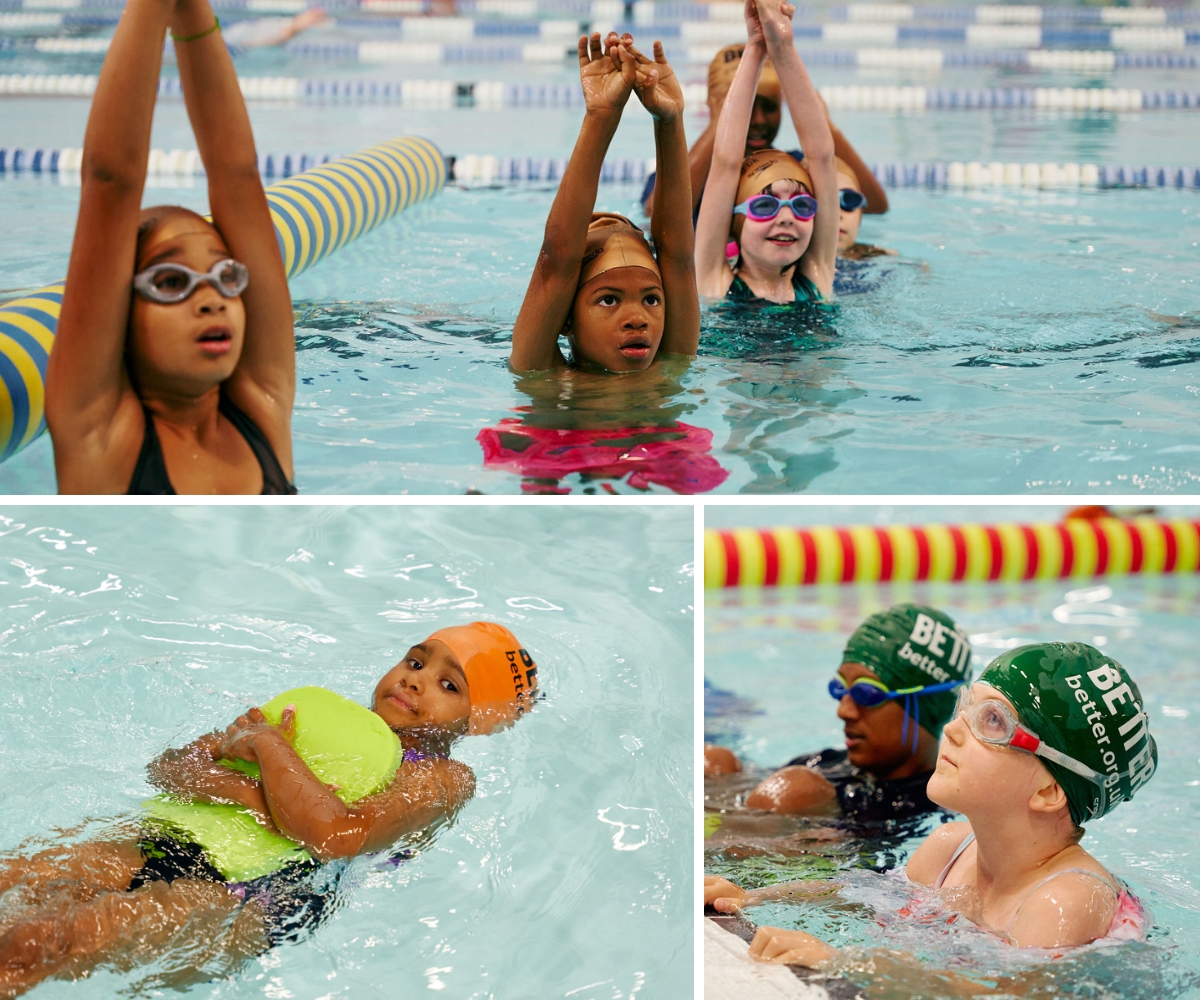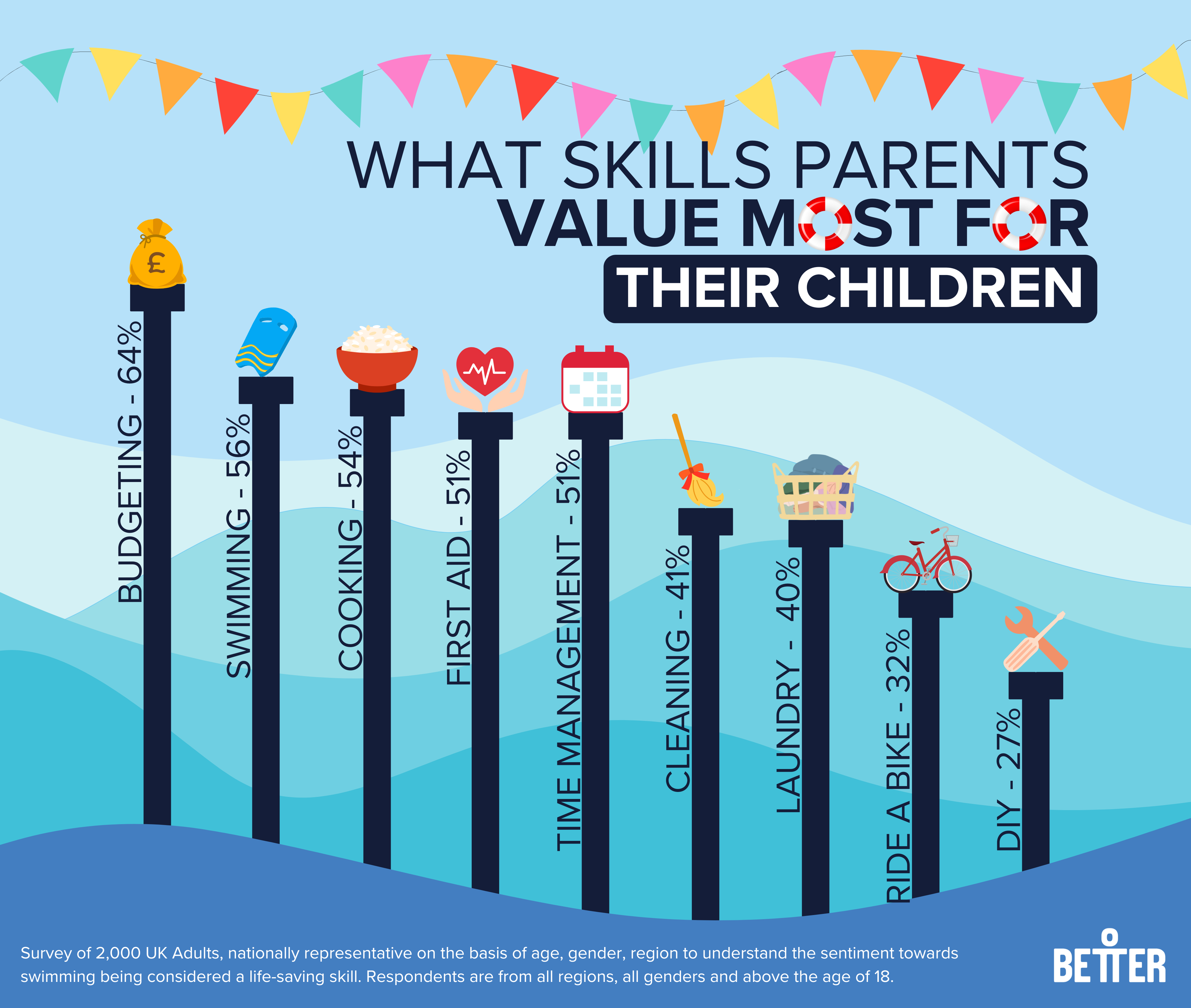Swim Report: Swimming lessons are more important than ever
As the largest swimming pool operator in the UK, we know how important swimming is for both mental and physical health, with millions of members reaping the benefits every year across the country. However, our latest research really drives the importance of swimming home; finding that 92% in the UK agree swimming is an essential life-saving skill. Despite this, there remains a concerning trend - many children are leaving school without having enough swimming lessons to ensure they are confident in the water.
We surveyed over 2,000 people in the UK about their experiences with their swimming education; how much they valued it growing up and in their adult life; as well as asking parents how important they see it for their children, as we explore the value swimming has to offer.

Swimming Lessons in Schools
Our survey discovered that 1 in 5 people say swimming was the most important thing they learned in school, right after Maths and English. Indeed, when it comes to non-core subjects such as foreign languages or food-tech, 84% said they believe swimming is either more important (24%) or just as important (60%) for children to learn, highlighting again how central swimming is considered to be in education.
Unfortunately, the state of swimming education in the UK is not as strong as it could be. A recent Sport England Active Live survey showed a noticeable drop in the number of children able to swim 25 meters by the time they reach year 7 over the last few years, falling from 76.8% down to 70.5%. In the 2022-23 academic year, over a third of primary school teachers provided fewer than 10 swimming lessons per pupil.
Lifelong Benefits of Swimming
This decline in swimming lessons is happening despite our research highlighting that many of us find swimming more useful in our adult lives than other subjects like science, computing, and even sex education. Furthermore, for parents, it’s clear that swimming is a highly valued skill. They overwhelmingly ranked swimming (56%) above other life skills like cooking (54%), cleaning (41%), DIY (27%), and even first aid (51%) as the most important for their children. Only budgeting comes out on top as “very important” for children’s future with 64%.

Parents believe that swimming is so important because it’s not only a fun activity to keep their children healthy and active—it’s also a vital life-saving skill. When planning family holidays, especially those involving water activities, knowing their kids can swim gives parents peace of mind. In fact, one of the biggest worries for parents during the summer holidays is the fear that their child could drown, with 71% of parents admitting to this concern. It beats other potential issues such as allergic reactions, catching an illness, getting sunburn or getting food poisoning.
Socioeconomic Disparities
So what’s holding kids back from learning to swim? The biggest barrier, according to our survey, is the cost of swimming lessons. Over half of the respondents (61%) pointed to the expense as a significant obstacle, further highlighting the importance of school swimming.
Socioeconomic factors play a huge role too. Kids from low-income families are much less likely to learn to swim compared to their peers from higher-income families. This disparity is evident in the Sport England Active Lives survey, which found that only 62.5% of children from low-income families could self-rescue by year 7, compared to 92.2% of children from wealthier backgrounds. Other barriers from our study include the availability of public transport (26%) and the time it takes to get to a pool (28%), while a significant 41% also cite the issue of feeling self-conscious about changing at the pool.
What isn’t an issue is people’s awareness of their local pool’s location, with 78% saying they know where their nearest swimming facilities are, and just 6% saying they are not aware at all - so it’s more down to ensuring potential swimmers have the ability, motivation and means to get to the pool and reap the benefits of the sport.
In Summary
Given how crucial swimming is for safety, fitness, and mental health, it’s essential that we find ways to make lessons more accessible. Reducing the cost of lessons, increasing and maintaining a strong level of swimming education in schools, improving public transport links to pools, and ensuring that local swimming facilities remain open are all steps that can help.
In conclusion, while swimming is undeniably recognized as a critical life skill, there are still significant barriers preventing many children from learning how to swim. By addressing these issues, we can ensure that every child in the UK has the opportunity to learn this essential skill, improving safety and wellbeing for future generations.
If you or your child wants to improve in the water, be sure to check out Better’s swimming lessons offering for all abilities, whether you want lessons for children, adults, women’s only, disabled and 1-to-1, we have it available, so find your nearest centre and get swimming!